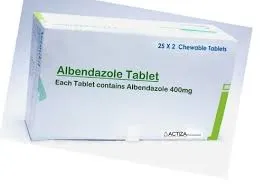- Afrikaans
- Albanian
- Amharic
- Arabic
- Armenian
- Azerbaijani
- Basque
- Belarusian
- Bengali
- Bosnian
- Bulgarian
- Catalan
- Cebuano
- Corsican
- Croatian
- Czech
- Danish
- Dutch
- English
- Esperanto
- Estonian
- Finnish
- French
- Frisian
- Galician
- Georgian
- German
- Greek
- Gujarati
- Haitian Creole
- hausa
- hawaiian
- Hebrew
- Hindi
- Miao
- Hungarian
- Icelandic
- igbo
- Indonesian
- irish
- Italian
- Japanese
- Javanese
- Kannada
- kazakh
- Khmer
- Rwandese
- Korean
- Kurdish
- Kyrgyz
- Lao
- Latin
- Latvian
- Lithuanian
- Luxembourgish
- Macedonian
- Malgashi
- Malay
- Malayalam
- Maltese
- Maori
- Marathi
- Mongolian
- Myanmar
- Nepali
- Norwegian
- Norwegian
- Occitan
- Pashto
- Persian
- Polish
- Portuguese
- Punjabi
- Romanian
- Russian
- Samoan
- Scottish Gaelic
- Serbian
- Sesotho
- Shona
- Sindhi
- Sinhala
- Slovak
- Slovenian
- Somali
- Spanish
- Sundanese
- Swahili
- Swedish
- Tagalog
- Tajik
- Tamil
- Tatar
- Telugu
- Thai
- Turkish
- Turkmen
- Ukrainian
- Urdu
- Uighur
- Uzbek
- Vietnamese
- Welsh
- Bantu
- Yiddish
- Yoruba
- Zulu
9 月 . 25, 2024 15:48 Back to list
dairy cow nutrition
Dairy Cow Nutrition Key Elements for Optimal Milk Production
Dairy cows play a crucial role in the agricultural industry, providing a significant source of milk and other dairy products. To ensure optimal milk production, it is vital to focus on the nutrition of these animals. Proper feeding not only supports high milk yield but also enhances the overall health and longevity of the cows. This article delves into the essential components of dairy cow nutrition and their significance.
1. The Importance of Balanced Diet
A balanced diet for dairy cows should include six key nutrients carbohydrates, proteins, fats, vitamins, minerals, and water. Each of these nutrients contributes to the overall health of the cow and affects her ability to produce milk efficiently.
- Carbohydrates are the primary source of energy for dairy cows. They can be derived from forages like hay, silage, and grains. High-energy feeds help ensure that the cows can maintain their milk production levels, especially during peak lactation.
- Proteins are essential for growth, tissue repair, and milk production. Dairy cows require a higher protein intake during lactation. High-quality protein sources such as soybean meal, alfalfa, and canola meal are beneficial in meeting these needs.
- Fats serve as a concentrated source of energy and help in the absorption of fat-soluble vitamins. However, fat should be included in moderation to prevent digestive issues.
- Vitamins and Minerals play a spectacular role in metabolic processes and overall health. Critical minerals like calcium and phosphorus support bone health and milk production. Vitamins A, D, and E are crucial for immune function and reproduction.
- Water is an often-overlooked nutrient but is vital for maintaining hydration, digestion, and milk production. Cows can drink between 30 to 50 gallons of water daily, especially when producing large quantities of milk.
2. Nutritional Requirements Across Lactation Stages
dairy cow nutrition

The nutritional needs of dairy cows vary at different stages of lactation. Early lactation requires a focus on energy and protein to support rapid milk production. During this time, cows are more susceptible to nutritional imbalances, which can lead to metabolic disorders. After the peak lactation period, the focus shifts toward maintaining body condition and supporting reproductive health.
3. The Role of Forages
Forages are an integral part of dairy cow diets. They provide not only fiber necessary for maintaining gut health but also contribute to energy intake. High-quality forages like grass and legume hay can significantly affect the rumen environment, promoting better digestion and nutrient absorption. Ensuring a good mix of forages can also aid in preventing issues like acidosis, which can occur due to high-grain diets.
Every dairy farm is unique, and so are the nutritional needs of the cows based on factors like age, weight, stage of lactation, and overall health. Regularly reviewing and adjusting the cow's ration is essential to meet their nutritional requirements effectively. Working with a livestock nutritionist can help farmers develop customized feeding programs that maximize productivity while ensuring the health and wellbeing of their herds.
5. Monitoring and Adjustments
Finally, monitoring the health and productivity of dairy cows is important in assessing the effectiveness of their nutritional programs. Observations of body condition, milk yield, and overall demeanor provide insights into whether adjustments are needed in their diet.
Conclusion
In conclusion, effective dairy cow nutrition is fundamental to successful milk production. A balanced diet rich in carbohydrates, proteins, fats, vitamins, and minerals, alongside adequate water intake, lays the groundwork for robust health and high milk yields. By tailoring nutritional strategies to meet the specific needs of dairy cows, farmers can ensure that their livestock remain healthy and productive throughout their lactation cycle.
-
The Power of Radix Isatidis Extract for Your Health and Wellness
NewsOct.29,2024
-
Neomycin Sulfate Soluble Powder: A Versatile Solution for Pet Health
NewsOct.29,2024
-
Lincomycin Hydrochloride Soluble Powder – The Essential Solution
NewsOct.29,2024
-
Garamycin Gentamicin Sulfate for Effective Infection Control
NewsOct.29,2024
-
Doxycycline Hyclate Soluble Powder: Your Antibiotic Needs
NewsOct.29,2024
-
Tilmicosin Premix: The Ultimate Solution for Poultry Health
NewsOct.29,2024













